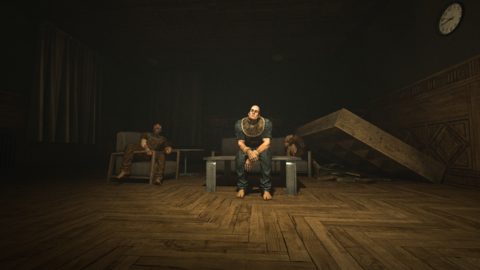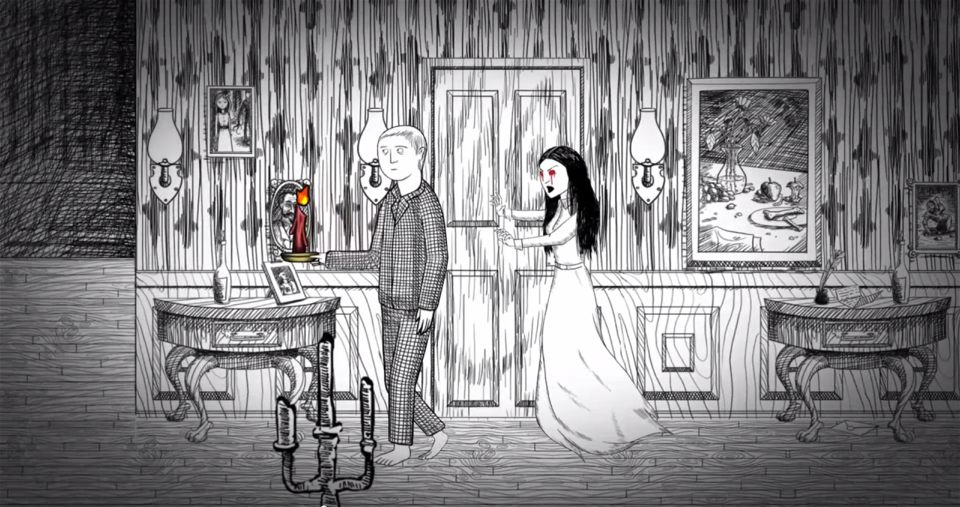“Crazy” people are a common horror trope. Insane asylums are often used as settings in the genre. Even gaming’s indie horror darling, Amnesia: The Dark Descent, has “sanity” as a gameplay mechanic.

Mental illness, a very real problem, is often used as a way to scare us. Asylum Jam, taking place October 11 through October 13, hopes to encourage designers to think more broadly about horror's potential.
“This jam is to show that you can still create a great horror experience without using inaccurate stereotypes of those who suffer from mental illness, or the institutions that support them in diagnosis and recovery,” reads the jam’s website.
Asylum Jam came into being thanks to Lucy Morris. She read an article on Kotaku by Ian Mahar titled “Nobody Wins When Horror Games Stigmatize Mental Illness” from earlier this year.
“Popular media drive popular beliefs, which lead to reinforcement, adaptation, or abandonment of stigmatic views,” said Mahar.
You don't have to spend much time to come up with horror game or movie that's riffed on mental illness.
Morris was inspired, and it helped she'd organized numerous game jams in the past. She settled on the name Asylum Jam as a way of ironically commenting on the problem at hand.
“There’s a positive way to both hone developer’s skills and to sometimes get a message across or create awareness,” she said.
Morris’ brother works in mental health care, and is training to be a nurse. Her stepfather aids the disabled.

Of course, Morris made it clear she doesn’t think games that have used traditional horror tropes, especially ones culling from mental illness stereotypes, are necessarily bad games. Instead, Morris hopes Asylum Jam encourages developers to come up with new ways of scaring players.
“Horror is usually derived from what we don’t understand,” she said. “There isn’t a lot of mental illness health awareness out of there, and I think that’s partly what has driven it to become a trope. The fact that it’s glorified in horror movies and video games and comics--all media, for so long--it’s just eventually come to this point where we expect to see these things.”
As developers started registering, Morris has heard some interesting stories and motivations for participation. One developer diagnosed with schizophrenia wants to make a game that illustrates what it’s like to live with vivid hallucinations. Another developer hopes to honor a co-worker’s recent suicide.
“Horror is usually derived from what we don’t understand. There isn’t a lot of mental illness health awareness out of there, and I think that’s partly what has driven it to become a trope."
We may be seeing the start of a trend in the horror genre, actually. Retro/Grade developer Matt Gilgenbach recently closed a successful Kickstarter to develop Neverending Nightmares, a game that specifically draws from his lifelong experience with various forms of mental illness.
“I have had quite a few emails from people,” said Morris, “who have said ‘yeah, I have suffered from mental illness, and I’d really like to actually create a horror game, create a game that shows awareness of my illness in particular, and portray it accurately, so people can really understand what we go through.’ I think that’s a really important step forward.”
More than 150 developers have currently committed to being part to Asylum Jam, which doesn’t count the developers showing up to physical locations throughout the world. With those, the number could well exceed 200, and it’s likely many others will spontaneously show up during the weekend. All of the games will be available through the game’s website when it closes Sunday. It's not too late to sign up, if you're interested.
“Game jams are a really positive way to bring awareness to an issue,” said Morris, “because you’re not sitting there saying ‘oh, this is wrong with the industry! But I’m not going to do anything about it.’ Over 150 people are going to come together and do something about it. It’s a positive response--being creative to move away from these tropes and explore.”